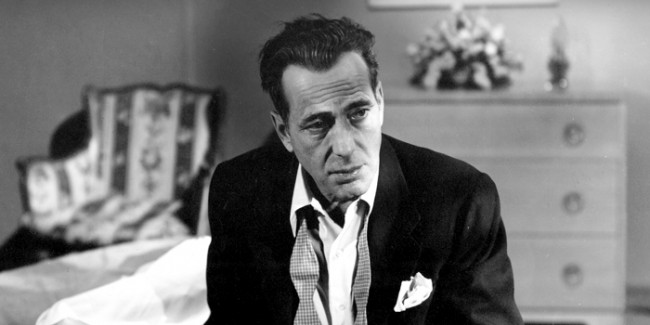By Ray Pride Pride@moviecitynews.com
Fifteen Nonfiction Films For 2016 (Plus 5 Blu-rays)
Fifteen slices of the truth in hard times, in alphabetical order. Will these filmmakers sustain careers, get finance for a succession of testaments, of feats of beauty like these?
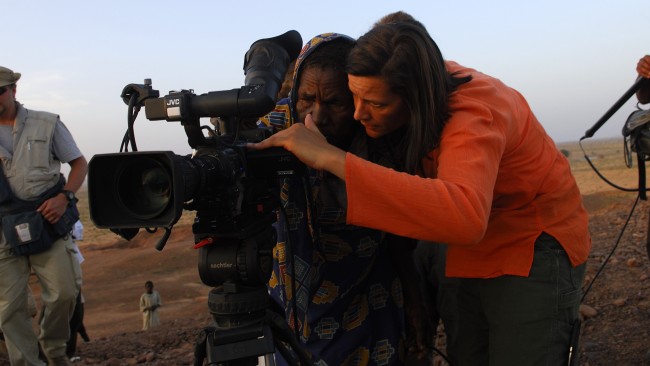 Cameraperson (Kirsten Johnson) Cameraperson illustrates that the creative process matters, but the greatest power lies in learning how to live. [More.]
Cameraperson (Kirsten Johnson) Cameraperson illustrates that the creative process matters, but the greatest power lies in learning how to live. [More.]
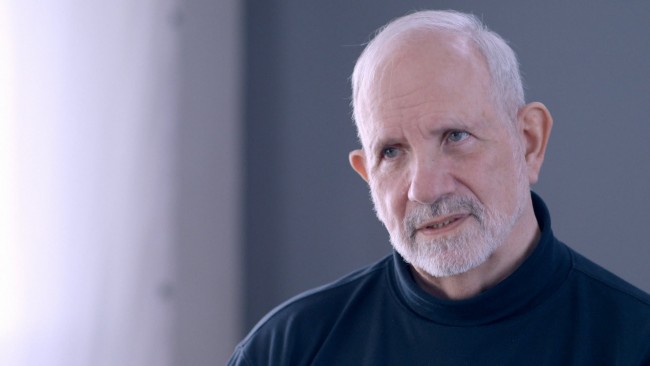 De Palma (Noah Baumbach, Jake Paltrow) “Being a director is being a watcher.” [More.]
De Palma (Noah Baumbach, Jake Paltrow) “Being a director is being a watcher.” [More.]
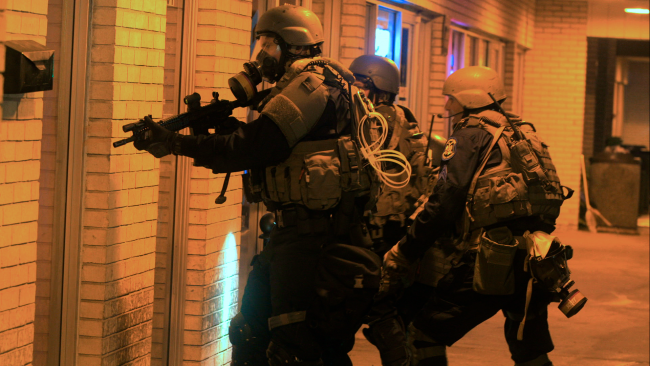 Do Not Resist (Craig Atkinson)These are weapons of war, these are the streets of America. It’s infuriating, and on a big screen, nearly overwhelming. It’s terrifying; it’s terror, Atkinson demonstrates. [More.] [Atkinson’s director’s statement.]
Do Not Resist (Craig Atkinson)These are weapons of war, these are the streets of America. It’s infuriating, and on a big screen, nearly overwhelming. It’s terrifying; it’s terror, Atkinson demonstrates. [More.] [Atkinson’s director’s statement.]
 Fire At Sea (Gianfranco Rosi) The images Rosi finds are bold, from the gentle to the dire, and at moments, hope is in limited supply, contrasting with the seawater that seems limitless. [More.]
Fire At Sea (Gianfranco Rosi) The images Rosi finds are bold, from the gentle to the dire, and at moments, hope is in limited supply, contrasting with the seawater that seems limitless. [More.]
HyperNormalisation (Adam Curtis) Curtis has theories, illustrated, conflated, constructed, instructed, asserted and neatly scored. This is his world. Ours? [The film is embedded above.]
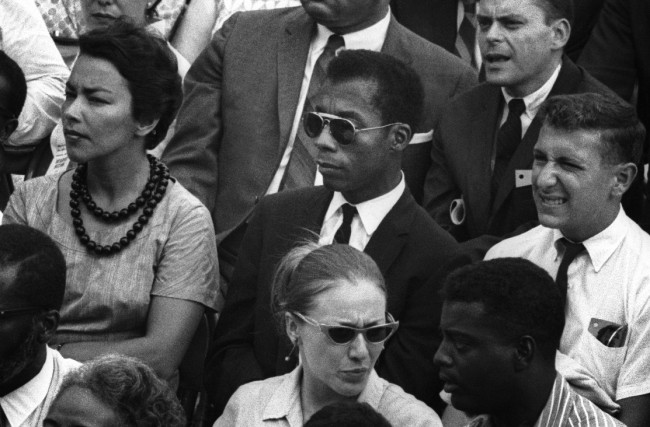 I Am Not Your Negro (Raoul Peck) Of its moment but told in this moment, a present-tense captured in James Baldwin’s narration, from thirty pages of an incomplete manuscript, delivered by Samuel L. Jackson in one of his great performances. As Peck writes in his director’s statement, “Baldwin gave me a voice, gave me the words, gave me the rhetoric. All I knew through instinct or through experience, Baldwin gave it a name and a shape. I had all the intellectual weapons I needed. For sure, we will have strong winds against us. The present time of discord and confusion is an unavoidable element. I am not naive to think that the road ahead will be easy or that the attacks will not be at time vicious. My commitment to make sure that this film will not be buried or sidelined is uncompromising. We are in it for the long run. Whatever time and effort it takes.”
I Am Not Your Negro (Raoul Peck) Of its moment but told in this moment, a present-tense captured in James Baldwin’s narration, from thirty pages of an incomplete manuscript, delivered by Samuel L. Jackson in one of his great performances. As Peck writes in his director’s statement, “Baldwin gave me a voice, gave me the words, gave me the rhetoric. All I knew through instinct or through experience, Baldwin gave it a name and a shape. I had all the intellectual weapons I needed. For sure, we will have strong winds against us. The present time of discord and confusion is an unavoidable element. I am not naive to think that the road ahead will be easy or that the attacks will not be at time vicious. My commitment to make sure that this film will not be buried or sidelined is uncompromising. We are in it for the long run. Whatever time and effort it takes.”
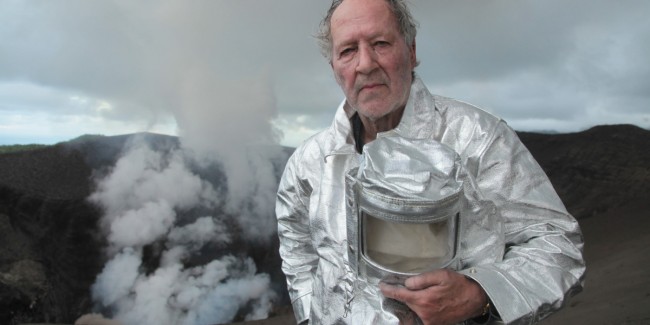 Into the Inferno (Werner Herzog) The year’s best Herzog-isms are the ones where he gleefully embraces streaming distribution; older models, he crows, cannot keep up with the prolific outpouring he is creating unto his seventy-fourth year.
Into the Inferno (Werner Herzog) The year’s best Herzog-isms are the ones where he gleefully embraces streaming distribution; older models, he crows, cannot keep up with the prolific outpouring he is creating unto his seventy-fourth year.
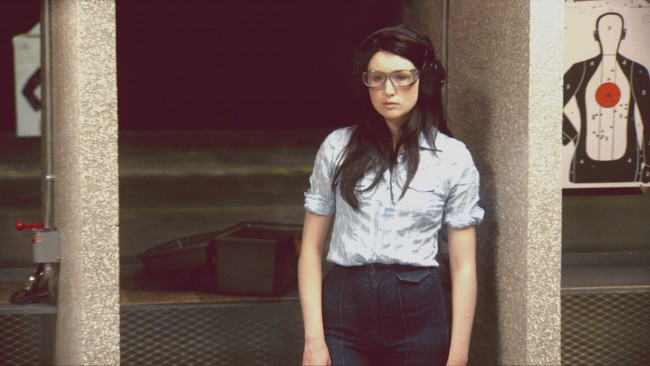 Kate Plays Christine (Robert Greene) Kate Plays Christine is thought in action, ideas in motion and also the portrayal of a slippery, frightening slide down a rabbit hole of hurt for Sheil. The story is what is true and what is false, and it’s all true and it’s all false. Christine is haunted. Kate is haunted. Ghosts. Ghosts everywhere. [More.]
Kate Plays Christine (Robert Greene) Kate Plays Christine is thought in action, ideas in motion and also the portrayal of a slippery, frightening slide down a rabbit hole of hurt for Sheil. The story is what is true and what is false, and it’s all true and it’s all false. Christine is haunted. Kate is haunted. Ghosts. Ghosts everywhere. [More.]
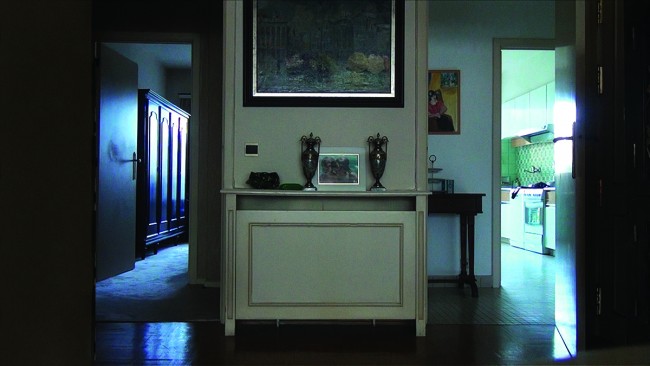 No Home Movie (Chantal Akerman) The film says more than this, I could say more than this, but there are so many daunting elements, down to the specificity and intimacy that Akerman ventures, through brusque low-res images, Skype, Blackberry, dares, attains. It could have been called “Goodbye to Mother,” “Goodbye to Life,” “Goodbye to Language.” Resistant, resigned. Asking, listening. Not punishing, but pained. Not deadly, but difficult. Not death, but life. [More.]
No Home Movie (Chantal Akerman) The film says more than this, I could say more than this, but there are so many daunting elements, down to the specificity and intimacy that Akerman ventures, through brusque low-res images, Skype, Blackberry, dares, attains. It could have been called “Goodbye to Mother,” “Goodbye to Life,” “Goodbye to Language.” Resistant, resigned. Asking, listening. Not punishing, but pained. Not deadly, but difficult. Not death, but life. [More.]
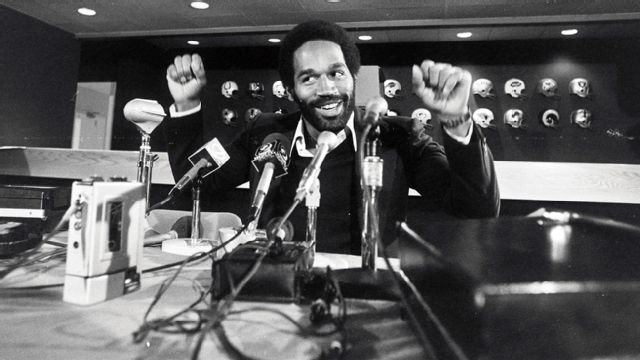 O.J.: Made in America (Ezra Edelman) It’s a movie. It’s television. It’s a movie. It’s elemental.
O.J.: Made in America (Ezra Edelman) It’s a movie. It’s television. It’s a movie. It’s elemental.
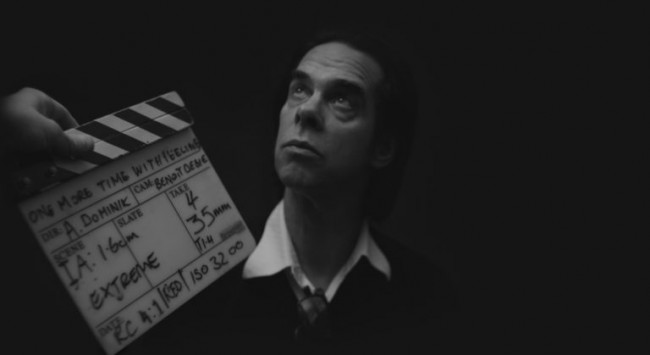 One More Time With Feeling (Andrew Dominik) Nick Cave didn’t want to be asked questions about his latest recording, released after the death of a son. Self-exploitation? Dominik and his camera circle. Beauty and grief.
One More Time With Feeling (Andrew Dominik) Nick Cave didn’t want to be asked questions about his latest recording, released after the death of a son. Self-exploitation? Dominik and his camera circle. Beauty and grief.
 The Other Side (Roberto Minervini) Rich, riotous, ribald and as disturbing as it ought to be, “The Other Side” rocks in righteous embrace. [More.]
The Other Side (Roberto Minervini) Rich, riotous, ribald and as disturbing as it ought to be, “The Other Side” rocks in righteous embrace. [More.]
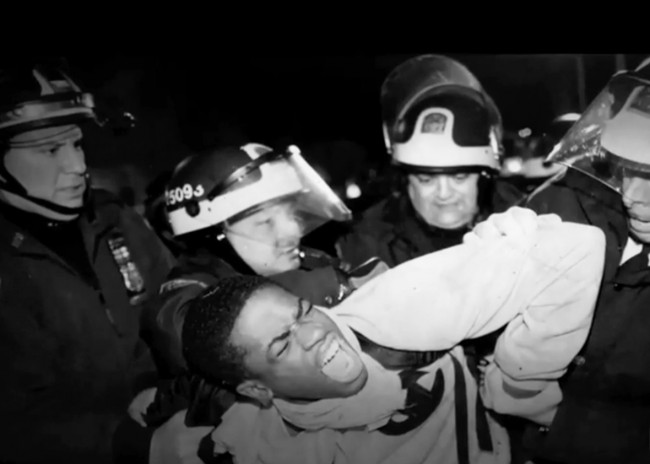 13th (Ava DuVernay) History in the present tense. Fleet, unflinching.
13th (Ava DuVernay) History in the present tense. Fleet, unflinching.
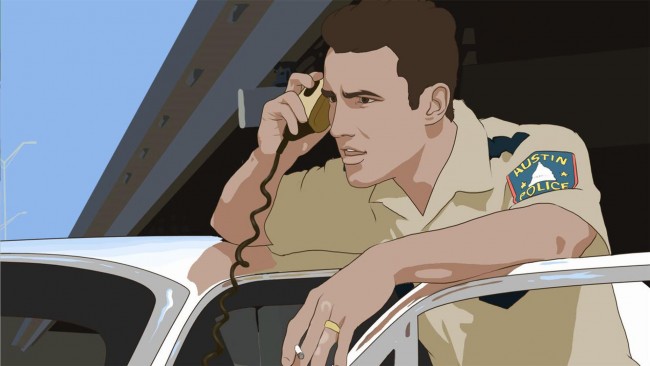 Tower (Keith Maitland) Elemental yet expressionistic, “Tower” is an admirable attainment, a broadside from the solar plexus, and the powerhouse ending, partially narrated by Walter Cronkite commenting in the day, is magnificent. [More.]
Tower (Keith Maitland) Elemental yet expressionistic, “Tower” is an admirable attainment, a broadside from the solar plexus, and the powerhouse ending, partially narrated by Walter Cronkite commenting in the day, is magnificent. [More.]
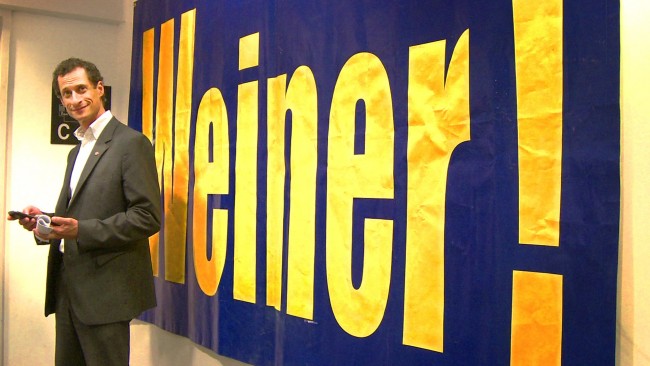 Weiner (Josh Kriegman, Elyse Steinberg) A high point, flawed only by a small cut, is in the Weiner-Abedin kitchen one morning, when Abedin is asked how she’s doing. She pauses, there’s a cut, she says flatly, “It’s like living in a nightmare.” She smiles, all poise and resolve and red lipstick and white teeth and hightails it out of the frame. [More.]
Weiner (Josh Kriegman, Elyse Steinberg) A high point, flawed only by a small cut, is in the Weiner-Abedin kitchen one morning, when Abedin is asked how she’s doing. She pauses, there’s a cut, she says flatly, “It’s like living in a nightmare.” She smiles, all poise and resolve and red lipstick and white teeth and hightails it out of the frame. [More.]
Blu-ray Editions
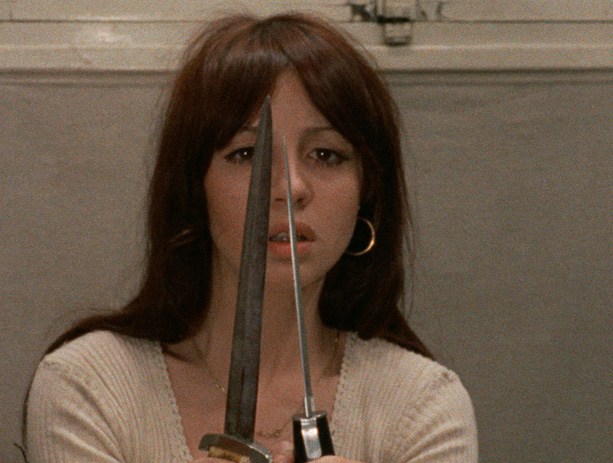 OUT 1 (Jacques Rivette) modesty of its gestures and the grandeur of its madness, mingling conspiracy adapted from Balzac’s “History of the Thirteen,” notions of performance, galling acting exercises of the era performed by double, warring troupes, impacted jealousy, labyrinthine intrigues, counterculture quiddities, sudden gunfire and remarkable experiments with time and duration that are almost unaccountably moving. [More]
OUT 1 (Jacques Rivette) modesty of its gestures and the grandeur of its madness, mingling conspiracy adapted from Balzac’s “History of the Thirteen,” notions of performance, galling acting exercises of the era performed by double, warring troupes, impacted jealousy, labyrinthine intrigues, counterculture quiddities, sudden gunfire and remarkable experiments with time and duration that are almost unaccountably moving. [More]
 Dekalog (Krzysztof Kieslowski) In the end, we are left with tenderness, ambiguity and a sense of the possibility of still being able to ask moral questions in everyday life. [More]
Dekalog (Krzysztof Kieslowski) In the end, we are left with tenderness, ambiguity and a sense of the possibility of still being able to ask moral questions in everyday life. [More]
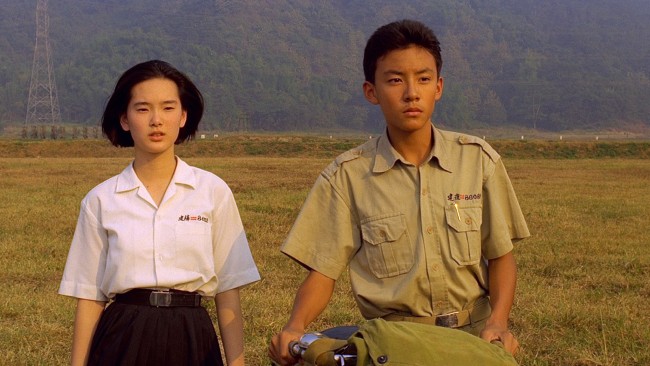 A Brighter Summer Day (Edward Yang) The screening began early and afterwards was the first warm afternoon in Chicago in weeks, and I walked through the Loop, circling, circling, amid faces and figures turning in their own fashion, to their own fates. I was lost yet I was found. It was as if the movie I had seen, its ninety-two locations would not dissipate. All one-hundred-plus characters. They weren’t ghosts. [More.]
A Brighter Summer Day (Edward Yang) The screening began early and afterwards was the first warm afternoon in Chicago in weeks, and I walked through the Loop, circling, circling, amid faces and figures turning in their own fashion, to their own fates. I was lost yet I was found. It was as if the movie I had seen, its ninety-two locations would not dissipate. All one-hundred-plus characters. They weren’t ghosts. [More.]
In A Lonely Place (Nicholas Ray) “I was born when she kissed me. I died when she left me. I lived a few weeks while she loved me.” All the love. All the hate. All the Nick.
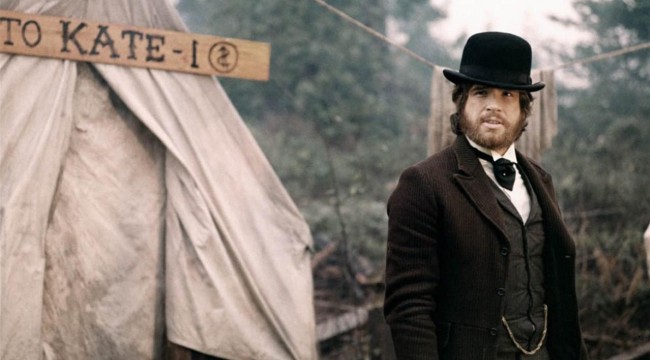 McCabe And Mrs. Miller (Robert Altman) Inspired subversions like McCabe were staples of studio ambitions way back when. Now? [More.]
McCabe And Mrs. Miller (Robert Altman) Inspired subversions like McCabe were staples of studio ambitions way back when. Now? [More.]









